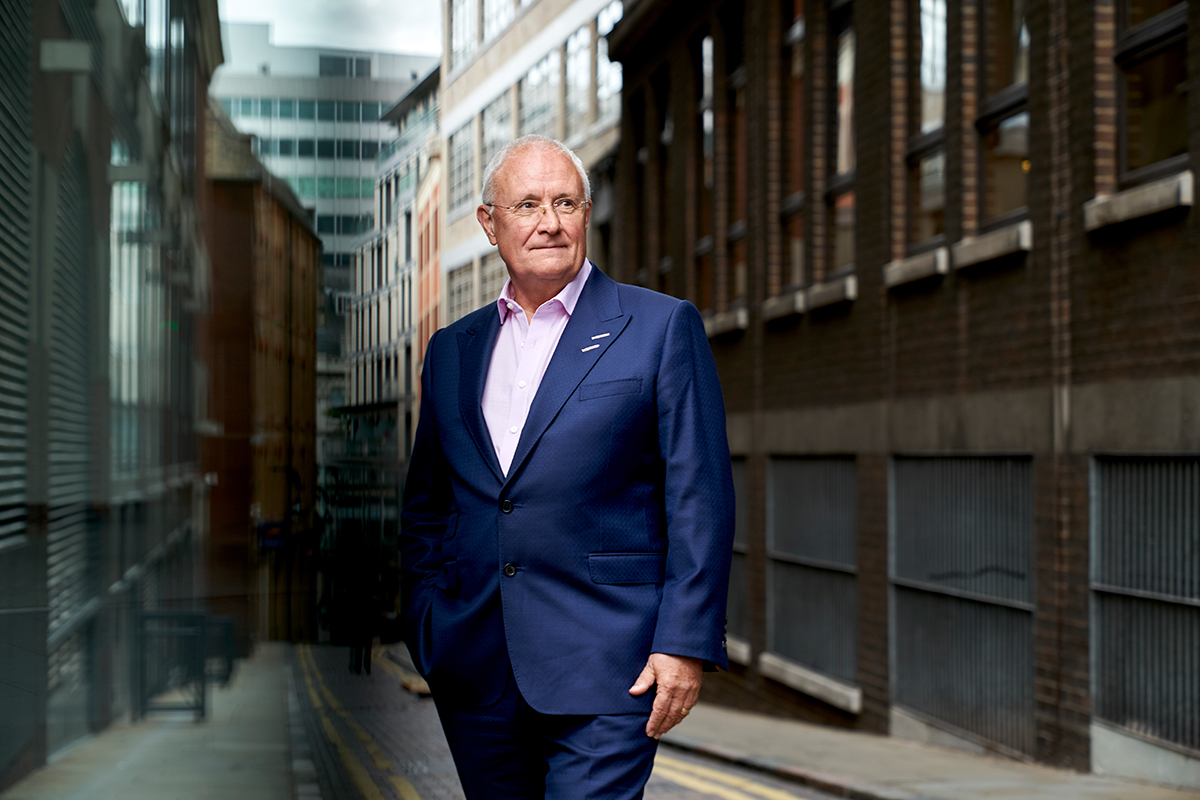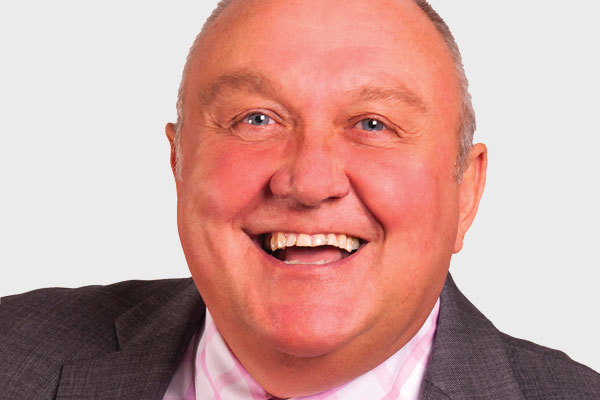The usual suspects? We scrutinise the appointment of a new generation of chief executives
The ‘old guard’ of chief executives are leaving the sector – but are housing associations making the most of the opportunity to improve inclusivity and diversity among their replacements? Carl Brown finds out. Illustration by Stephen Collins
Inside Housing’s Inclusive Futures campaign aims to promote diversity and inclusion among housing’s leadership teams
The contact books of journalists who have been covering the housing sector for a few years are likely to be a little out of date these days.
The last few years have seen a huge number of chief executives of large housing associations standing down or retiring.
The turnover of chief executives in the biggest 100 housing associations has been gathering pace for some years.
Twenty-one appointed a new chief executive in the three years from 2006 to 2010. From 2011 to 2014 it was 23. In the last three years, from January 2015 to today, there have been 34.
And this 34 figure doesn’t include a further 11 appointments where new organisations formed out of mergers have retained the chief executives of one of their predecessor organisations as CEO.
In total, some 44 chief executives have left their roles since January 2015, taking with them 511 years of experience. This includes ‘big beasts’ such as retirees Tom Dacey, Keith Exford and Steve Howlett.
So what does this changing of the guard mean for the sector? And to what extent is the sector grasping this as an opportunity to improve inclusivity among chief executives?
Our exclusive data table (see below) measures the current term lengths of the chief executives of the largest 100 housing associations in the UK. Where a chief executive has left as a result of appointments since 2015, we have also recorded how long their predecessor was in the post.
Perhaps the most obvious thing to note is that the list of departures is overwhelmingly of people retiring, with only a handful moving on to other CEO jobs, such as Geeta Nanda (who moved from Thames Valley to Metropolitan).
Thirty of the chief executives to depart had been in their post for 10 years or more, these include several who were appointed as the first chief executives of associations formed through the glut of large scale voluntary transfers encouraged by New Labour in the early 2000s.
It is not surprising that 15 or 20 years or so down the line, a lot of these executives have now reached retirement age.
Chief executive terms of largest 100 housing associations
Click on any column heading to sort
| Full years in post | Chief exec | Since | Organisation name | Total stock | Preceded by / departed | Departure date | Since | Full years in post | |
|---|---|---|---|---|---|---|---|---|---|
| 21 | David Cowans | 1997 | Places for People | 182,725 | |||||
| 0 | Ruth Cooke* | 2018 | Clarion Housing Group | 124,878 | Keith Exford | 2018 | 2006 | 12 | *Ms Cooke has been placed on leave |
| 26 | David Bennett* | 1992 | Sanctuary Group | 99,481 | 0 | *Mr Bennett will leave in January | |||
| 10 | David Montague | 2008 | L&Q | 90,571 | |||||
| 3 | Catriona Simons | 2015 | The Guinness Partnership | 66,684 | Simon Dow | 2015 | 2001 | 14 | |
| 14 | Kate Davies* | 2004 | Notting Hill Genesis | 64,871 | Neil Hadden (Genesis) | 2017 | 2009 | 8 | * Includes 14 years as chief executive of Notting Hill prior to the formation of Notting Hill Genesis in 2018 |
| 0 | Mark Washer | 2018 | Sovereign | 55,791 | Ann Santry | 2018 | 2000 | 18 | |
| 10 | Mark Henderson | 2008 | Home Group | 55,516 | |||||
| 17 | Brendan Sarsfield* | 2001 | Peabody (including Family Mosaic) | 55,104 | Steve Howlett | 2017 | 2004 | 13 | *Includes 16 years as chief executive of Family Mosaic before its 2017 merger with Peabody |
| 6 | Carol Matthews | 2012 | Riverside | 52,610 | |||||
| 9 | Martin Armstrong | 2009 | Wheatley Group | 49,817 | |||||
| 4 | Elaine Bailey | 2014 | Hyde | 49,160 | |||||
| 5 | Paul Hackett* | 2012 | Optivo | 41,896 | Nick Apetroaie (Viridian) | 2017 | 2015 | 1 | *Includes five years as chief executive of Amicus Horizon before the formation of Optivo in 2017 |
| 2 | Bronwen Rapley | 2016 | Onward Homes (Symphony HG) | 40,791 | Phil Gandy | 2016 | 2007 | 9 | |
| 1 | Mark Hoyland | 2017 | Orbit | 40,610 | Paul Tennant | 2016 | 2003 | 13 | |
| 1 | Geeta Nanda | 2017 | Metropolitan (including Thames Valley) | 37,505 | Brian Johnson | 2016 | 2012 | 4 | |
| 4 | Steve Close | 2014 | Together Housing Group | 36,841 | |||||
| 29 | Darrell Mercer | 1988 | A2 Dominion | 36,739 | |||||
| 8 | Paul Crawford* | 2009 | Liverty | 36,015 | Nick Horne (Knightstone) | 2017 | 1998 | 19 | *Includes eight years as chief executive of Decon & Cornwall Housing prior to its merger with Knightsotne in 2018 |
| 8 | Jane Ashcroft | 2010 | Anchor Trust | 35,098 | |||||
| 0 | David Jepson (interim)* | 2017 | Gentoo | 34,021 | John Craggs | 2017 | 2015 | 2 | *Nigel Wilson will take over in January |
| 2 | Ian Wardle | 2016 | Thirteen Group | 33,741 | Alison Thain* | 2016 | 2014 | 8 | *Includes six years as Fabrick chief executive |
| 6 | Brian Cronin | 2012 | Your Housing Group | 33,277 | |||||
| 0 | Glenn Harris | 2018 | Midland Heart | 33,153 | Ruth Cooke | 2018 | 2012 | 6 | |
| 1 | Hilary Roberts* | 2016 | Jigsaw Group | 31,951 | Ian Munro (New Charter) | 2017 | 2000 | 17 | *Includes less than two years as chief executive of Adactus |
| 13 | Kevin Dodd | 2005 | WDH | 31,202 | |||||
| 1 | Nicholas Harris | 2017 | Stonewater | 30,853 | Bob Strachan | 2017 | 2015 | 1 | |
| 3 | Kevin Rodgers | 2015 | WM Housing | 30,715 | Pat Brandum | 2015 | 2002 | 13 | *Includes eight years as West Mercia CEO |
| 3 | Philippa Jones* | 2015 | Bromford | 29,510 | Mick Kent | 2014 | 1984 | 20 | *Ms Jones is to leave after Bromford merges with Merlin |
| 5 | Mark Perry* | 2013 | Vivid | 29,322 | Peter Walters (First Wessex) | 2017 | 2007 | 10 | *Includes three years as chief executive of Sentinel |
| 9 | Bjorn Howard | 2009 | Aster Group | 29,219 | |||||
| 0 | Alan Townshend | 2018 | Southern Housing Group | 27,540 | Tom Dacey | 2018 | 1995 | 23 | |
| 15 | David Pickering | 2003 | Waterloo Housing Group | 26,867 | Gerald Taylor (Acclaim) | 2016 | 2002 | 14 | |
| 0 | Gary Orr* | 2018 | Radian | 24,241 | Lindsay Todd | 2017 | 2006 | 9 | *Mr Orr begins his role in October |
| 7 | Dilip Kavi* | 2011 | PA Housing | 23,593 | Matt Cooney (Asra) | 2017 | 2010 | 7 | *Includes six years as Paragon chief executive before the merger with Asra. Mr Cooney is now chief operating officer at PA Housing |
| 15 | Geraldine Howley | 2003 | Incommunities | 22,836 | |||||
| 9 | David McQuade | 2008 | Flagship Homes | 22,521 | |||||
| 17 | Rob Young* | 2001 | Torus | 21,592 | Peter Mercer (Golden Gates) | 2014 | 2003 | 11 | *Includes 14 years as chief executive of Helena Partnerships |
| 16 | Rod Cahill* | 2002 | Catalyst | 21,153 | *Mr Cahill is leaving Catalyst at the end of 2018 | ||||
| 6 | Helen Evans | 2011 | Network Homes | 20,649 | |||||
| 1 | Paul Dolan | 2017 | Accent Group | 20,622 | Gordon Perry | 2017 | 2007 | 9 | |
| 5 | Elizabeth Austerberry | 2013 | Moat | 20,494 | |||||
| 8 | Gary Fulford | 2009 | WHG | 20,334 | |||||
| 1 | David McCullough | 2017 | Abbeyfield | 20,189 | Douglas Webb (interim) | 2017 | 2017 | 0 | |
| 3 | Julie Doyle | 2015 | Longhurst Group | 19,895 | *Bob Walder | 2014 | 1989 | 25 | *Includes 11 years as chief executive of Longhurst Housing Association |
| 5 | Bruce Moore | 2013 | Housing & Care 21 | 19,589 | |||||
| 5 | Matthew Harrison | 2013 | Great Places Housing Group | 18,964 | |||||
| 14 | Chan Kataria | 2004 | EMH Group | 18,913 | |||||
| 3 | Barbara Spicer | 2014 | Plus Dane | 18,782 | |||||
| 4 | Clare Tickell | 2014 | Hanover | 18,780 | |||||
| 3 | Bill Fullen | 2014 | County Durham Housing Group | 18,367 | |||||
| 4 | Kevin Bolt | 2014 | BPHA | 18,186 | *Includes period as interim | ||||
| 8 | Jon Lord | 2010 | Bolton at Home | 17,846 | |||||
| 10 | Tim Doyle | 2008 | ForViva | 17,666 | |||||
| 10 | Mervyn Jones | 2008 | Yorkshire Housing | 16,516 | |||||
| 7 | Paul Fiddaman* | 2011 | Karbon Homes | 16,365 | Includes one year as chief executive of Isos and five years as chief executive of Cestria Community Housing | ||||
| 1 | Richard Hill | 2017 | One Housing | 16,224 | Mick Sweeney | 2017 | 2007 | 10 | |
| 14 | Amanda Davies* | 2004 | Pobl Group | 15,971 | Michael Williams (Gwalia) | 2016 | 1982 | 34 | Includes 12 years as chief executive of Seren Group |
| 2 | John Clark | 2016 | Plymouth Community Homes | 15,779 | Clive Turner | 2016 | 2009 | 7 | |
| 1 | John Baldwin* | 2017 | Thames Valley Housing | 15,466 | Geeta Nanda | 2017 | 2008 | 9 | *Mr Baldwin was appointed as Thames Valley CEO until the completion of its merger with Metropolitan this month |
| 24 | Guy Weston* | 1994 | Fortis Living | 15,460 | *Includes 10 years as chief executive of Festival Housing and seven years as chief executive of Spa Housing Association | ||||
| 10 | Steve Coffey | 2008 | Liverpool Mutual Homes | 15,378 | |||||
| 0 | John Johnston | 2018 | Bernicia | 14,547 | Bill Heads | 2018 | 2008 | 10 | |
| 3 | Matthew Bailes | 2015 | Paradigm | 14,231 | Alison Hadden | 2015 | 2007 | 8 | |
| 18 | John Broadhead | 2000 | The Wrekin Housing Group | 13,536 | |||||
| 5 | Nigel Wilson* | 2013 | Wythenshawe Community Housing Group | 13,532 | *Mr Wilson is leaving Wythenshawe at the end of the year to go to Genoo | ||||
| 7 | Victor da Cunha | 2011 | Curo | 13,288 | |||||
| 0 | Ian Munro (interim) | 2018 | Knowsley Housing Trust | 13,284 | Bob Taylor | 2018 | 2004 | 14 | |
| 11 | Gareth Swarbrick | 2007 | Rochdale Boroughwide Housing | 13,097 | |||||
| 4 | Michael Birkett | 2014 | Regenda | 13,040 | |||||
| 12 | Roy Williams | 2006 | One Vision Housing | 13,016 | |||||
| 29 | Chris Handy | 1989 | Accord | 12,717 | |||||
| 13 | John McLean* | 2005 | Radius | 12,506 | *Including 12 years as CEO of Fold | ||||
| 13 | Brian Simpson | 2005 | Magenta Living | 12,479 | |||||
| 10 | David Power* | 2008 | One Manchester | 12,002 | Sheila Doran (Eastlands) | 2015 | 2005 | 10 | *Includes seven years as CEO at City South Manchester |
| 3 | Gavin Cansfield | 2015 | North Hertfordshire Homes | 11,968 | Kevin Thompson | 2015 | 2002 | 13 | |
| 12 | Sarah Boden* | 2006 | Housing Plus Group | 11,854 | Debbie Griffiths (Housing Plus) | 2016 | 2003 | 13 | *Including 10 years as chief executive of Severnside Housing |
| 5 | Howard Toplis | 2013 | GreenSquare Group | 11,685 | |||||
| 12 | Anne Hinchey | 2006 | Wales & West Housing | 11,623 | |||||
| 0 | Vinny Roche | 2018 | First Choice Homes Oldham | 11,571 | Cath Green | 2017 | 2010 | 7 | |
| 1 | Aileen Evans | 2017 | Grand Union Housing Group | 11,437 | Alan Humphreys | 2017 | 1999 | 18 | |
| 25 | John Synnuck | 1993 | Swan Housing Association | 10,868 | |||||
| 3 | Claire Higgins | 2014 | Cross Keys Homes | 10,840 | |||||
| 0 | Ian Thomas | 2017 | Trivallis | 10,837 | Adrian Barber (interim) | 2017 | 2017 | 0 | |
| 2 | Ian McDermott* | 2016 | Aldwyck Housing Group | 10,752 | Harj Singh | 2015 | 2009 | 6 | *Mr McDermott joins Catalyst at the end of the year |
| 2 | Michael McDonnell | 2015 | Choice Housing | 10,687 | Ian Elliott (Oaklee) | 2016 | 2000 | 15 | |
| 2 | Michael McDonnell | 2015 | Choice Housing | 10,687 | Arthur Canning (Trinity) | 2015 | 1983 | 31 | |
| 2 | Michael McDonnell | 2015 | Choice Housing | 10,687 | John Gartland (Ulidia)* | 2016 | 1991 | 25 | *Start date is approximate |
| 0 | Peter Lenehan (acting) | 2018 | Coast & Country | 10,657 | Iain Sim | 2018 | 2002 | 16 | |
| 14 | Zoe Forster | 2004 | Dumfries & Galloway Housing Partnership | 10,304 | |||||
| 7 | Gary Orr* | 2011 | Yarlington Housing Group | 10,245 | *Mr Orr is leaving Yarlington in October to join Radian | ||||
| 18 | David Done | 2000 | RHP | 10,083 | |||||
| 14 | Jacqueline De-Rose | 2003 | Progress Housing Group | 10,069 | |||||
| 14 | Ceri Doyle | 2004 | Newport City Homes | 9,714 | |||||
| 0 | Steve Hepworth | 2018 | Ongo | 9,700 | Andy Orrey | 2017 | 2007 | 10 | |
| 8 | Linda Whittaker | 2010 | Tai Tarian (formerly NPT Homes) | 9,629 | |||||
| 0 | Mary Gibbons | 2018 | CHP | 9,406 | Stuart Stackhouse | 2018 | 2002 | 16 | |
| 11 | Sinead Butters | 2006 | Aspire Housing | 9,329 | |||||
| 11 | Mike Andrews | 2007 | Nottingham Community | 9,224 | |||||
| 10 | Lindsey Williams | 2007 | Futures Housing Group | 9,185 | |||||
| 1 | Alan Brunt | 2017 | Bron Afon | 8,989 | Duncan Forbes | 2017 | 2007 | 10 | |
| 3 | Lee Sugden | 2014 | Salix Homes | 8,936 |
Source for stock figures: www.housingexpert.com
Another, possibly more important, factor is that many housing figures who came in to the sector in the late 1960s and early 1970s as part of the post-Cathy Come Home indignation are now hitting retirement age.
“It has been like a generation who grew up in the ‘housing movement’, reaching that stage together,” says Greg Campbell, partner at recruitment firm Campbell Tickell. Mr Campbell goes on to suggest policies announced under the Cameron government may have persuaded in some chief executives that now is the time to call it a day.
Mr Campbell says: “People were not expecting the rent cut, that meant organisations had to make cuts, and that made a lot of people think ‘this is not what I came into the sector for.’”
Added to this is pressure on organisations to diversify their funding streams, the challenges of digitisation, coping with an ageing population and welfare reform and changes to consumer regulation post-Grenfell. All of this may have been an influencing factor in persuading some to step down.
Most recent chief executive appointments
Click on any column heading to sort
| Chief executive | Appointed | Organisation name | Total stock | |
|---|---|---|---|---|
| Ruth Cooke* | 2018 | Clarion Housing Group | 124,878 | *Ms Cooke has been placed on leave |
| Mark Washer | 2018 | Sovereign | 55,791 | |
| Glenn Harris | 2018 | Midland Heart | 33,153 | |
| Alan Townshend | 2018 | Southern Housing Group | 27,540 | |
| Gary Orr* | 2018 | Radian | 24,241 | *Mr Orr begins his role in October |
| John Johnston | 2018 | Bernicia | 14,547 | |
| Ian Munro (interim) | 2018 | Knowsley Housing Trust | 13,284 | |
| Vinny Roche | 2018 | First Choice Homes Oldham | 11,571 | |
| Peter Lenehan (acting) | 2018 | Coast & Country | 10,657 | |
| Steve Hepworth | 2018 | Ongo | 9,700 | |
| Mary Gibbons | 2018 | CHP | 9,406 | |
| Mark Hoyland | 2017 | Orbit | 40,610 | |
| Geeta Nanda | 2017 | Metropolitan (including Thames Valley) | 37,505 | |
| David Jepson (interim)* | 2017 | Gentoo | 34,021 | *Mr Wilson will take over in January |
| Nicholas Harris | 2017 | Stonewater | 30,853 | |
| Paul Dolan | 2017 | Accent Group | 20,622 | |
| David McCullough | 2017 | Abbeyfield | 20,189 | |
| Richard Hill | 2017 | One Housing | 16,224 | |
| John Baldwin | 2017 | Thames Valley Housing | 15,466 | |
| Aileen Evans | 2017 | Grand Union Housing Group | 11,437 | |
| Ian Thomas | 2017 | Trivallis | 10,837 | |
| Alan Brunt | 2017 | Bron Afon | 8,989 | |
| Bronwen Rapley | 2016 | Onward Homes (Symphony HG) | 40,791 | |
| Ian Wardle | 2016 | Thirteen Group | 33,741 | *Includes six years as Fabrick chief executive |
| Hilary Roberts* | 2016 | Jigsaw Group | 31,951 | *Includes less than two years as chief executive of Adactus |
| John Clark | 2016 | Plymouth Community Homes | 15,779 | |
| Ian McDermott* | 2016 | Aldwyck Housing Group | 10,752 | *Mr McDermott joins Catalyst at the end of the year |
| Catriona Simons | 2015 | The Guinness Partnership | 66,684 | |
| Kevin Rodgers | 2015 | WM Housing | 30,715 | *Including eight years as West Mercia CEO |
| Philippa Jones* | 2015 | Bromford | 29,510 | *Ms Jones is to leave after Bromford merges with Merlin |
| Julie Doyle | 2015 | Longhurst Group | 19,895 | *Includes 11 years as chief executive of Longhurst Housing Association |
| Matthew Bailes | 2015 | Paradigm | 14,231 | |
| Gavin Cansfield | 2015 | North Hertfordshire Homes | 11,968 | |
| Michael McDonnell | 2015 | Choice Housing | 10,587 |
The fact that 30 chief executives had served in their roles for 10 years or more suggests a lot of experience is being lost, it also raises questions about the length of executive terms in the sector, as does the fact that 28 current CEOs have been in their post for a decade or more.
The average length of CEO tenure for FTSE 100 companies is six years,research by international recruitment firm Heidrick & Struggleshas shown.
This suggests the biggest housing associations often have chief executives in the post for longer than other large companies.
Kate Still, chief operations officer at WM Housing, believes this needs addressing. “After 10 or 15 years you need some fresh thinking, a new perspective,” she says. Incidentally, Ms Still’s own boss at WM Housing, Kevin Rogers, is one of the new faces having been appointed chief executive in 2015 replacing the experienced Pat Brandum.
Longest-serving current chief executives
Click on any column heading to sort
| Chief executive | Full years in post | Organisation | Total stock | |
|---|---|---|---|---|
| Chris Handy | 29 | Accord | 12,717 | |
| Darrell Mercer | 29 | A2 Dominion | 36,739 | |
| David Bennett | 26 | Sanctuary Group | 99,481 | *Mr Bennett will leave in January |
| John Synnuck | 25 | Swan Housing Association | 10,868 | |
| Guy Weston* | 24 | Fortis Living | 15,460 | *Includes 10 years as chief executive of Festival Housing and seven years as chief executive of Spa Housing Association |
| David Cowans | 21 | Places for People | 182,725 | |
| John Broadhead | 18 | The Wrekin Housing Group | 13,536 | |
| David Done | 18 | RHP | 10,083 | |
| Brendan Sarsfield* | 17 | Peabody (including Family Mosaic) | 55,104 | *Includes 16 years as chief executive of Family Mosaic before its 2017 merger with Peabody |
| Rob Young* | 17 | Torus | 21,592 | *Includes 14 years as chief executive of Helena Partnerships |
| Rod Cahill* | 16 | Catalyst | 21,153 | *Mr Cahill is leaving Catalyst at the end of 2018 |
| David Pickering | 15 | Waterloo Housing Group | 26,867 | |
| Geraldine Howley | 15 | Incommunities | 22,836 | |
| Kate Davies* | 14 | Notting Hill Genesis | 64,871 | * Includes 14 years as chief executive of Notting Hill prior to the formation of Notting Hill Genesis in 2018 |
| Chan Kataria | 14 | EMH Group | 18,913 | |
| Amanda Davies* | 14 | Pobl Group | 15,971 | *Includes 12 years as chief executive of Seren Group |
| Zoe Forster | 14 | Dumfries & Galloway Housing Partnership | 10,304 | |
| Ceri Doyle | 14 | Newport City Homes | 9,714 | |
| Jacqueline de Rose | 14 | Progress Housing Group | 10,069 | |
| Kevin Dodd | 13 | WDH | 31,202 | |
| John McClean* | 13 | Radius | 12,506 | *Including 12 years as chief executive of Fold |
| Brian Simpson | 13 | Magenta Living | 12,479 | |
| Roy Williams | 12 | One Vision Housing | 13,016 | |
| Sarah Boden* | 12 | Housing Plus Group | 11,854 | *Including 10 years as chief executive of Severnside Housing |
| Anne Hinchey | 12 | Wales & West Housing | 11,623 | |
| Gareth Swarbrick | 11 | Rochdale Boroughwide Housing | 13,097 | |
| Mike Andrews | 11 | Nottingham Community | 9,224 | |
| Sinead Butters | 11 | Aspire Housing | 9,329 | |
| David Montague | 10 | L&Q | 90,571 | |
| Mark Henderson | 10 | Home Group | 55,516 | |
| Tim Doyle | 10 | ForViva | 17,666 | |
| Mervyn Jones | 10 | Yorkshire Housing | 16,516 | |
| Steve Coffey | 10 | Liverpool Mutual Homes | 15,378 | |
| David Power* | 10 | One Manchester | 12,002 | *Including seven years as CEO at City South Manchester |
| Lindsey Williams | 10 | Futures Housing Group | 9,185 |
Steve Douglas, partner at Altair, suggests long terms are not necessarily a problem if the CEO is still ‘growing, developing and thinking’.
However, what these lengthy terms do suggest is that it might be a number of years before so many roles become vacant again.
Mr Douglas said: “This is a window of opportunity to ensure greater diversity and the sector should seize it.”
So is the sector grabbing this opportunity so far?
The answer, unfortunately appears to be ‘no’.
Our analysis shows that just two out of of the 34 new chief executives appointed since 2015 are black or minority ethnic (BME) and one of these is Geeta Nanda, who had been an existing chief executive at Thames Valley before her move to Metropolitan.
Chief executive departures
Click on any column heading to sort
| Chief executive | Departure date | Full years in post | Organisation |
|---|---|---|---|
| Keith Exford | 2018 | 12 | Clarion Housing Group |
| Ann Santry | 2018 | 18 | Sovereign |
| Ruth Cooke | 2018 | 6 | Midland Heart |
| Tom Dacey | 2018 | 23 | Southern Housing Group |
| Bill Heads | 2018 | 10 | Bernicia |
| Bob Taylor | 2018 | 14 | Knowsley Housing Trust |
| Iain Sim | 2018 | 16 | Coast & Country |
| Stuart Stackhouse | 2018 | 16 | CHP |
| Steve Howlett | 2017 | 13 | Peabody (including Family Mosaic) |
| Neil Hadden (Genesis) | 2017 | 8 | Notting Hill Genesis |
| Nick Horne (Knightstone) | 2017 | 19 | Liverty |
| Nick Apetroaie (Viridian) | 2017 | 1 | Optivo |
| Peter Walters (First Wessex) | 2017 | 10 | Vivid |
| Lindsay Todd | 2017 | 9 | Radian |
| Bob Strachan | 2017 | 1 | Stonewater |
| Mick Sweeney | 2017 | 10 | One Housing |
| Geeta Nanda | 2017 | 9 | Thames Valley Housing |
| Alan Humphreys | 2017 | 18 | Grand Union Housing Group |
| Duncan Forbes | 2017 | 10 | Bron Afon |
| Ian Munro (New Charter) | 2017 | 17 | Jigsaw Group |
| Cath Green | 2017 | 7 | First Choice Homes Oldham |
| Andy Orrey | 2017 | 10 | Ongo |
| John Craggs | 2017 | 2 | Gentoo |
| Douglas Webb (interim) | 2017 | 0 | Abbeyfield |
| Adrian Barber (interim) | 2017 | 0 | Trivallis |
| Gerald Taylor (Acclaim) | 2016 | 14 | Waterloo Housing Group |
| Michael Williams (Gwalia) | 2016 | 34 | Pobl Group |
| Debbie Griffiths (Housing Plus) | 2016 | 13 | Housing Plus Group |
| Matt Cooney (Asra) | 2016 | 6 | PA Housing |
| Phil Gandy | 2016 | 9 | Onward Homes (Symphony HG) |
| Alison Thain | 2016 | 8 | Thirteen Group |
| Clive Turner | 2016 | 7 | Plymouth Community Homes |
| Paul Tennant | 2016 | 13 | Orbit |
| Brian Johnson | 2016 | 4 | Metropolitan (including Thames Valley) |
| Gordon Perry | 2016 | 9 | Accent Group |
| Ian Elliott (Oaklee) | 2016 | 15 | Choice Housing |
| John Gartland (Ulidia) | 2016 | 25 | Choice Housing |
| Sheila Doran (Eastlands) | 2015 | 10 | One Manchester |
| Simon Dow | 2015 | 14 | The Guinness Partnership |
| Pat Brandrum | 2015 | 13 | WM Housing |
| Alison Hadden | 2015 | 8 | Paradigm |
| Kevin Thompson | 2015 | 13 | North Hertfordshire Homes |
| Arthur Canning (Trinity) | 2015 | 31 | Choice Housing |
| Harj Singh | 2015 | 6 | Aldwyck Housing Group |
Only nine of the 34 appointments were women and only one was from outside the social housing sector.
Taking ethnicity first, the fact that just 5.9% of new appointments are BME stands out as a very low figure, suggesting little progress compared to the 4.5% of 331 housing executives identified as BME in an audit published by Inside Housing earlier this year.
Tom Murtha, a former chief executive and long-time campaigner for more inclusivity in the sector, says: “It is shocking and shameful that out of 34 appointments just two BME chief executives, including one that was already a chief executive, have been appointed. This was a huge opportunity and for whatever reason we haven’t been able to open up to talent from the BME community.”
Mr Murtha says a lack of skilled candidates within BME communities is not the problem, and there are high numbers of BME people working in the sector in more junior positions.
“All of the evidence suggests that diverse interview panels lead to diverse candidates and diverse recruitment outcomes", Steve Douglas, partner, Altair
Terrie Alafat, chief executive of the Chartered Institute of Housing, agrees. She says: “We know from our own internal research that as a sector, housing is actually more diverse than average. But at the top of our organisations, on our senior teams and boards, it’s a different story.”
For Mr Murtha the responsibility to change this situation begins and ends with boards, which are often dominated by white men and are, unconsciously or otherwise, drawn to appointing candidates who look like them.
He says: “A lot of the solutions you hear put forward suggest there is a problem within the BME communities and associations talk about the need to develop people and skills, but actually we are the problem, we need to get our culture right – we shouldn’t be just picking people in our own image.”
Mr Douglas says where there is a will from an organisation, recruiters should be able to ensure diversity of board membership. He adds that most associations adopt maximum board terms of six or nine years, meaning opportunities to refresh boards come up regularly.
He says: “All of the evidence suggests that diverse interview panels lead to diverse candidates and diverse recruitment outcomes.”
In addition to ensuring diverse boards, Mr Murtha also suggests that if people from BME communities are not applying for roles, organisations need to think about how and where they advertise roles or whether they need to change the criteria.
The criteria used to select candidates is also a major factor in the relative lack of women chief executives appointed, suggest Ms Still.
In numbers: chief executive appointment analysis
44 chief executives have left the role since 2015
9 of the 34 chief executive appointments are women
5.9% are new appointments were black or minority ethnic
11.6 years the average length of term of those that have left since 2015
She points out that boards in the sector typically have a preference for candidates with skill sets in traditionally male-dominated areas, such as property or finance, rather than areas such as housing management. Of the 34 new CEOs it is not always obvious how to categorise their background, but it does indeed look as though the biggest group can be said to be from finance or development.
“There is a real undervaluing of the housing management part of the organisation” she says.
Ms Still says there is therefore “a skill set deficit” in the sector, and a misunderstanding about the nature of leadership. She argues: “A good leader doesn’t necessarily need technical skills, they need to be able to drive a business forward and take people with them.”
The danger in all this, she suggests, is that boards look at a narrow skill set based on finance and governance and that people who display different thinking and different characteristics are overlooked.
She also suggests that women often don’t want to apply for more senior posts because of stereotyping and constantly being told they are wrong by men. A lot of networking in the sector also takes place outside of work hours, which is not suitable for those with childcare responsibilities, often women.
Chief executives explain why they left when they did
“I think the turnover in housing association chief executives should be seen as an opportunity for the sector to re-energise and reinvent itself to meet the increasing challenges of the housing crisis. "Hopefully a younger and more diverse cohort of CEOs than when I became one in my mid 40s will challenge and disrupt the market and find new solutions.
"I retired as Accent CEO as part of my long term plan to retire when I turned 60, but am finding new energy and enthusiasm in my non executive director roles.
"Perhaps the nine- year max non-executive rule should be extended to CEOs?”
It certainly should be considered if a CEO has not led there organisation to grow, strengthen or transform its operations."
Gordon Perry, retired as chief executive of Accent Group in 2017
"There is a good reason for the nine-year rule with board members, and I think similar principles apply to chief executives - a time comes for organisations to get fresh impetus and we had actively planned for succession so it just seemed reasonably normal.
"Some people can switch off from work, unfortunately I’m not one of those and all the successes and failures of the organisation were very personal to me which gets a bit wearing after so many years. The rent cuts weren’t a factor ; we got over that within six months of it being announced."
Andy Orrey, who left his role as chief executive of Ongo in 2017
The concerns about a narrow focus when recruiting are arguably also borne out by the finding that just one out of the 34 new appointments are from outside of the social housing sector
Mr Campbell says boards often “flirt” with the idea of looking outside the sector, but when it comes to the crunch they tend to go with people who have social housing sector experience. “Some might say that is conservative but it is a pretty complicated sector,” he says.
Mr Douglas on the other hand, warns that not looking outside housing “would be a cause for concern if organisations are missing the opportunity to consider the widest pool of talent.”
The debate about hiring outside of your own sector is one that has been going for many years, but out-of-sector appointments are on the rise among the largest companies, according to a 2016 study by consultancy PWC.
But the overall picture in UK social housing is of risk-averse boards largely sticking to candidates in the sector, with a preference for those with finance or development backgrounds.
"The window of opportunity created by the old guard retiring is closing"
Only one in four of new CEOs are women, and hardly any are from BME communities.
Are we likely to see any change soon? There certainly has been much talk in the sector about inclusivity recently.
Inside Housing’s Inclusive Futures campaign challenges landlords to sign up to steps to promote inclusivity among leadership teams and the CIH’s presidential commission also has practical recommendations for landlords.
Several associations have pledged to adopt the Rooney Rule – which obliges them to shortlist women and BME candidates for senior roles.
The Leadership 2025 programme, sponsored by L&Q, Optivo, BME London and supported by the Mayor of London, aims to help BME leaders into senior positions, while the National Housing Federation has pledged to “bring organisations together and encourage them to challenge themselves” on diversity.
So there is much talk, but the window of opportunity created by the old guard retiring is closing and the time for action is now.
The Inclusive Futures Summit
Inside Housing is launching the Inclusive Futures Summit
Our high-level summit will bring together respected people leaders and exemplars from the across sector and wider business to debate, discuss and learn how to embed diversity and inclusion in your organisations and harness the myriad benefits that this creates and to ensure that your workplace is reflective of the diverse communities you serve.
Themes being discussed include why being an inclusive organisation can help you be more successful, how to make inclusion visible in your organisation and the best approaches to encourage diversity at board level.
Discussions will also focus on how to future-proof your recruitment processes, promote inclusion through talent management, build working environments safe from prejudice and tackle unconscious bias.
The summit will take place on October 11 at the Emirates Old Trafford, Manchester.
Inclusive Futures
Inside Housing’s Inclusive Futures campaign aims to promote and celebrate diversity and inclusion.
We are pledging to publish diversity audits of our own coverage.
We are also committed to proactively promoting positive role models.
We will do this through the pages of Inside Housing. But we will also seek to support other publications and events organisations to be more inclusive.
Our Inclusive Futures Bureau will provide a database of speakers and commentators from all backgrounds, for use by all media organisations.
We are also challenging readers to take five clear steps to promote diversity, informed by the Chartered Institute of Housing’s diversity commission and the Leadership 2025 project.
THE INCLUSIVE FUTURES CHALLENGE
Inside Housing calls on organisations to sign up to an inclusive future by taking five steps:
Prioritise diversity and inclusion at the top: commitment and persistence from chief executives, directors and chairs in setting goals and monitoring progress.
Collect data on the diversity of your board, leadership and total workforce and publish annually with your annual report. Consider gender, ethnicity, disability, sexuality, age, and representation of tenants on the board.
Set aspirational targets for recruitment to the executive team, board and committees from under-represented groups.
Challenge recruiting staff and agencies to ensure that all shortlists include candidates from under-represented groups.
Make diversity and inclusion a core theme in your talent management strategy to ensure you support people from under-represented groups to progress their careers.
THE CASE FOR CHANGE
34%
of housing association chief executives are female
1%
of housing association executives have a disability
1.6%
of housing association board members are LGBT
Women make up 46% of the UK workforce, but Inside Housing research found that they are under-represented on housing association boards (36%), executive teams (39%) and among chief executives (34%).
Almost a fifth of working-age adults have a disability (18%), yet associations reported only 1% of executives and 4.5% of board members with a disability. Many were unable to provide details.
Nationwide, 14% of the working-age population come from a BME background, climbing to 40% in London and Birmingham. Yet our research found that 6.8% of board members identified as BME, compared with 4.5% of executives.
Statistics on representation of LGBT people in the workforce are in short supply, but official statistics suggest that 2% of the total UK population identify as lesbian, gay or bisexual, rising to 4.1% for 16 to 24-year-olds. Our survey found that 1.6% of board members and 10 executives were LGBT – but most organisations were unable to provide figures.
INSIDE HOUSING’S PLEDGES
We will take proactive steps to promote positive role models from under-represented groups and provide information to support change.
We pledge to:
Publish diversity audits: We will audit the diversity of the commentators we feature. We will formalise this process and publish the results for future audits twice a year.
Promote role models: We will work to highlight leading lights from specific under-represented groups, starting in early 2018 with our new BME Leaders List.
Launch Inclusive Futures Bureau: We will work with the sector to compile a database of speakers, commentators and experts from under-represented groups. The bureau will be available to events organisers, media outlets and publications to support them to better represent the talent in the sector.
Take forward the Women in Housing Awards: Inside Housing has taken on these successful awards and will work to grow and develop them.
Convene Inclusive Futures Summit: Our new high-level event will support organisations to develop and implement strategies to become more diverse and inclusive.
The Inside Housing Diversity Audit: how diverse has our coverage been?
The media plays a key role in championing diverse role models, so we designed a project to measure Inside Housing’s track record.
















